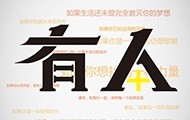ON “Media”
The character for “media” as is understood in modern Chinese, refers to an intermediary between two things. In ancient China, “media” contained the notion of “strategy,” derived from a similar character for “plan.” The so-called “matchmaker”— the strategist— was a person or thing that brought families together through marriage. The person who introduced two families— the matchmaker— gradually become synonymous with anyone who helped build a marriage by introducing the bride and groom. The matchmaker appears very early in Chinese history, as early as the Zhou Dynasty approximately 2000 years ago. A number of old Chinese sayings and proverbs come from this heritage. For example, “men and women do not ask each other's name without a matchmaker”; “men and women do not become friends without a matchmaker”; “women don't marry without a matchmaker”; and “it will not rain without clouds in the sky, and people will not marry without a matchmaker on the ground.” One sees that matchmaking— that is to say, the matchmaker— played an important role in ancient China, with its background of increasingly harsh ethics under which men and women could not choose freely whom to love. It was precisely because of their importance that, from one ancient epoch to the next, customs existed to show deep gratitude toward matchmakers. Some were expensive extravaganzas of gratitude, some more refined ceremonial receptions for elder generations. To put it simply, the matchmaker was very important.

The natural personality trait a matchmaker must possess, first and foremost, is the ability to be outgoing. To match-make, one has to interact with people, something introverts are not apt to do. A second set of traits includes warm-heartedness, a willingness to help others, preferring to be in-the-know, and having an ear for gossip. These are all prerequisites for matchmakers. Forgive the author for using the feminine Chinese character for “they” when referring to matchmakers; this is emphatically not intended as gender bias, it's just that observation suggests that matchmakers tend to be female. One might speculate that, compared to men, within social situations women form stronger bonds, have a stronger interest in chit-chat, and are more likely to develop bonds of trust. It is for this reason that the special term “female matchmaker” was used in the Ming and Qing dynasties.
Of course, while the issue of marriage for disabled people is an issue in need of urgent attention, Valentine's Day is coming up soon enough. Rather, what we want to discuss with you this time is not how disabled people hook up, or the many wonderful ways to identify qualified matchmakers, but something else entirely. I suspect sharp readers have already figured it out: yes, it's the media.
Why, then, would we start by talking about matchmakers? Instead, let's take a look at a skill every qualified matchmaker must have.
To be a good matchmaker, the first necessary skill is eloquence, the second is having a thick skin. In Chinese, matchmaking is also called “speaking to match a couple.” Thus, one must have a way with words. One should be able to say black is white, what is dead is alive, fat folks are full-bodied, the skinny are trim, tall men are statuesque, and short men are spirited. If a man lacks speaking skills- say his power comes from his intellect- when faced with a man lacking academic credentials, a matchmaker would say he has other outstanding abilities. Where a man has little to say, commend his steady temperament; a troublemaker or instigator might have strong interpersonal skills; a man from a good family has a higher starting point; and a man who endured poverty and a bitter childhood is a testament to individualism. To have a high success rate, the matchmaker spares no effort praising the men and women she is tasked to introduce.
So, we see, in reality a qualified matchmaker believes in a simple value system: every man and woman can find their match. A priest or a nun can quit, a monk can return to normal life, and even a Buddhist nun can fantasize— anyone unwilling to marry is the natural enemy of matchmakers. For great matchmakers, aside from the thanks one receives, success rate is the most important standard of measure. Thus, to ensure greatness, matchmakers must make full use of all their skills. A person who looks like Zhu Bajie (a pig-man in Journey to the West) can be said to be like Tang Sanzang (a handsome Tang Dynasty monk who also travelled west); a man who looks like Wu Dalang (who lost the heart of the fictional heroine Pan Jinlian) can be said to look like Xi Menqing (who won her heart); a haggardly witch can be said to look like one of the seven celestial princesses of lore; and, from a matchmaker's mouth, a Zhong Wuyan can be recast as a Zhao Feiyan (both of the Warring States period, one more handsome than the other). When telling lies, a matchmaker should appear unmoved, showing nothing through facial expressions, nor even allowing her heartbeat to rise. She should never blush when her lies are exposed, but say, “What I say is for their sake (referring to the men and women she introduces), I just hope they can become a couple.” Then the lies are just white lies. They are told for specific reasons making them forgivable. The key lies in the difference between what is said and what is actually done.
Matchmakers often occupy a space between men and women lacking information about each other. From such a position, matchmakers enjoy considerable space in which to mold the truth. This is similar in some respects to the modern media, which stands between the public and the truth. Though we have entered the era of self-media, the public remains a long way from the truth.
Of course, we are not writing this to accuse the media of ill-intent, nor to say matchmakers lack integrity. Rather, we make these points to show the inspiration drawn from matchmakers. They value the creation of one quality relationship after another, and the receipt of one gesture of gratitude after the next. So it is natural that, in the process of her work as a matchmaker, she might— consciously or unconsciously— use her own framework when describing someone to an intended match. But what about our media and journalists? When they describe facts, of course they really are facts, but are they merely facts as seen through one's lens? Whether these facts are “the truth” or not is difficult to say.
The sentence, “The king died and three years later the queen died, too,” would be reported in a pop magazine as “The king died and three years later the queen died of grief.” While in a history journal, it would likely be “The king died and three years later the queen died, too. Then, the prince grew up and became the new king.” Some adjectives can be added, some content can be subtracted— but in both cases the statements remain true. The relation between facts and the truth, we do not know; nor do we know who knows. We simply realize that the medium itself is something that is created. In a way, it is like a chicken: in the hands of different people, it becomes different things— diced chicken meat, soup, stir fry, stewed or steamed. And this, in turn, is determined by the eaters' preferences, or perhaps by those who train the eaters to have certain preferences. Just the same with reporters: though they record facts, their leaderships are different, as are their readers, and the facts they report and write may vary greatly.

Here, a clever reader would undoubtedly retort, “You yourselves are a magazine; what you are saying is that the things you write are also mere creations— not truth? To this, I can only answer, “Yes.” However, disabled people like us, when in front of the news media, are just chickens to be cooked. Is it not absurd for a chicken to run to the table to tell you, “Hey, buddy, you know, actually, this isn't the best way to eat chicken?” Of course it is! But this is exactly the way things are, because we rarely see what we think is true in the media. We have no better option than “to do as the matchmaker does.”
You say, “How could you draw such an analogy? How could you have such a misunderstanding? The media has put out numerous reports on disabled people and they are highly objective accounts. Though disabled physically, disabled people are determined in mind. They are role models for others. Disabled people live in pain and society must care for them. Disabled people sacrifice themselves for the progress of humanity and they should be offered more help….”
Okay, these statements are certainly true in the eyes of many people. And of course, we acknowledge that they are indeed true. But they are not the whole truth, because they do not include the voice of disabled people. If you have read the first four issues of You Ren, then now is a time to think this over: What do disabled people really look like? And after finishing this issue of You Ren, please think this over again: What exactly does a disabled person look like?!
In this issue of China Disability Observation, we swim against the tide. In our small group, it is we who talk about the “media.”






